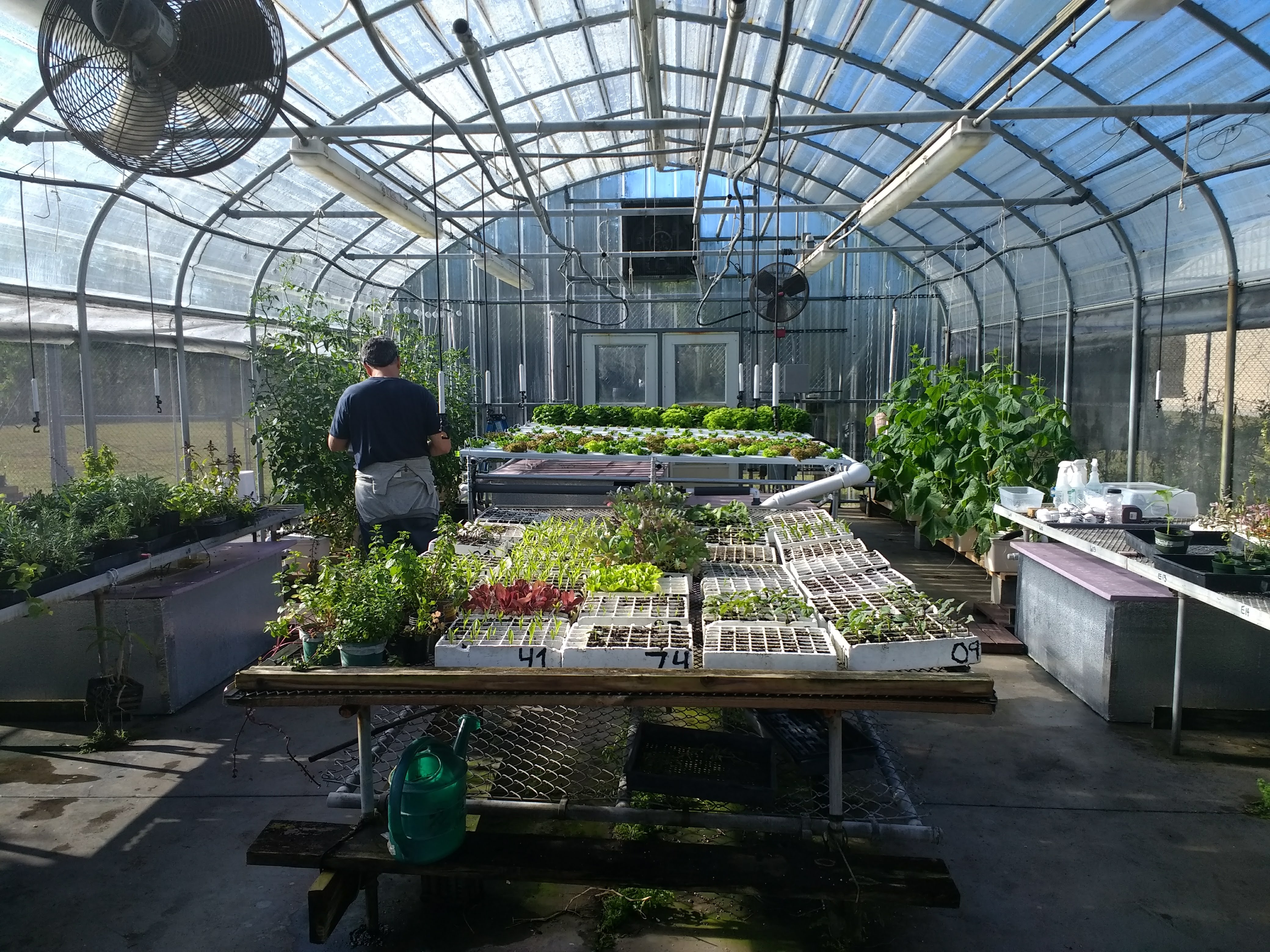I had the great opportunity this last weekend to go on the Eat Local Farm Tour presented by Transition Sarasota and The University of Florida’s Institute of Food and Agricultural Sciences. We visited five different local farms who all contribute to the community through their own special niches.
The tour started at McIntosh Middle School, which has one of the most advanced Agriscience centers in the area. David Gwatney, who has a background in architecture and construction, has been developing the program for the last sixteen years. He has integrated a variety of growing methods and tools, teaching his students about growing in soil, hydroponics, how to juice sugarcane, and a number of other projects, letting them learn through doing. The program has also recently made its way into the cafeteria, offering students the opportunity to eat salad that has been grown right on the property.
All Aboard Charters then took us to Blumenberry Farms, where farmers Mitch Blumenthal and Melvin Ramos grow a variety of crops sold at a variety of places. He also specializes in duck eggs. His farm has been certified organic for decades, and his watermelon radishes and rainbow carrots are astounding.
Next, “Doc” welcomed us to Seneca Farms on Fruitville Road. The property had been hit fairly hard by Hurricane Irma, ripping of the roof to one of the buildings and shredding the coverings on the greenhouses. This has put the farm a few months behind on all of their plantings, but they continue on.
After a lunch provided by Zildjian Catering, who has great food and uses compostable eating utensils and cups, we went to Grove Ladder Farms, where Tim and Chelsea Clarkson operate a pasture-raised chicken farm with their three daughters. With 1,000 chickens on the property, their egg wagons are moved around the pastures, protecting the chickens with a mobile electronic fence, allowing the chickens the freedom to roam and eat grass while also fertilizing the soil.
Lastly, we went to Florida Native Plants Nursery and Landscaping, which offers native trees, shrubs, edibles, wildflowers, and more. Their purpose is to encourage people to reverse the trend of landscaping with plants that need extra water and chemicals to thrive in this climate by landscaping with native plants instead. Native plants not only need less water and chemicals, but they also more inviting to birds and other critters.
In addition to Transition Sarasota and UF/IFAS, the event was sponsored by Visit Sarasota, Farm Credit of Florida, Florida Farm Bureau Insurance, and Edible Sarasota.

